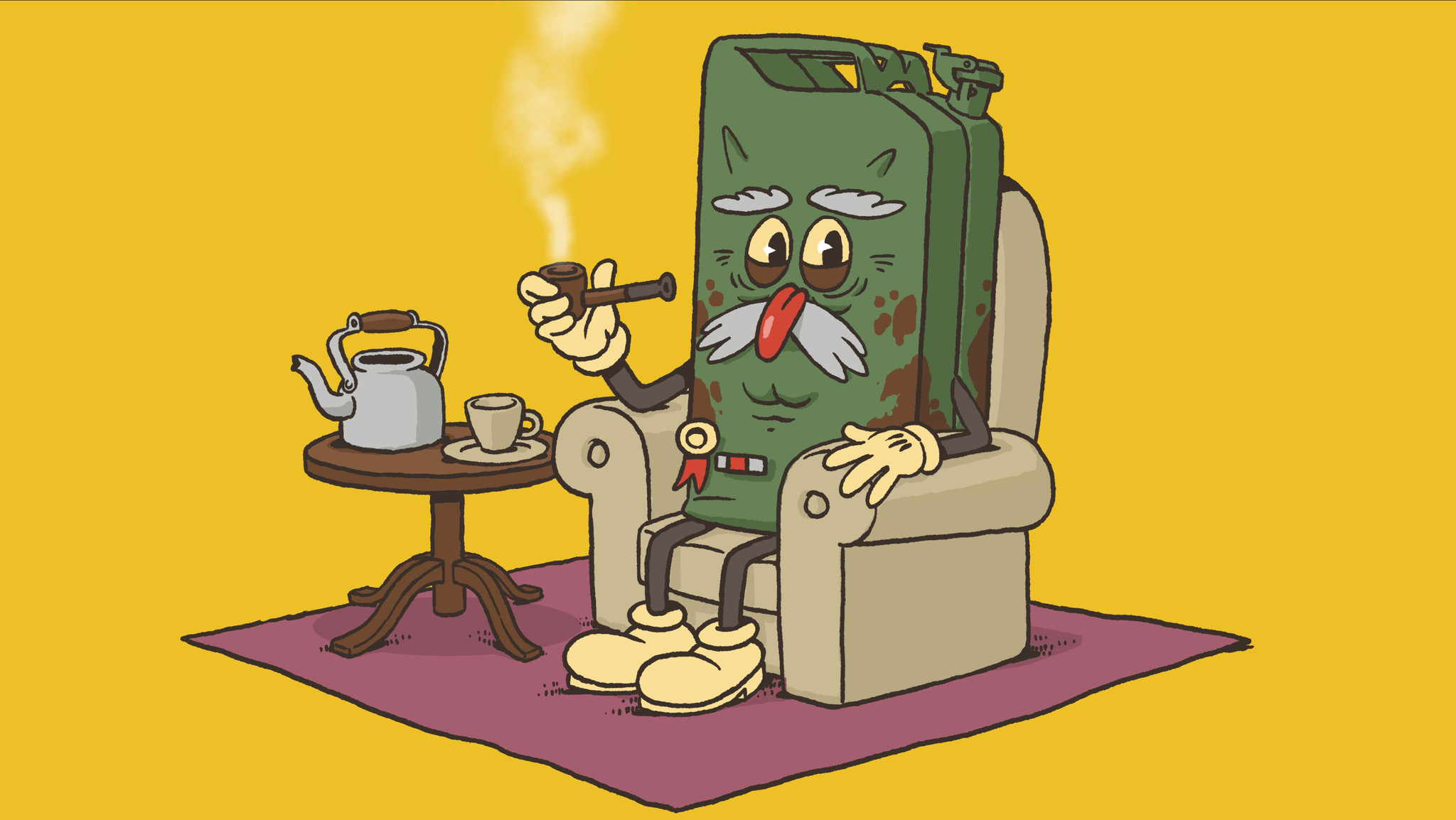Jerrycans to Can Jerry
↳ Leon Kahane

2020
In Leon Kahane’s work Jerricans to Can Jerry, we encounter a contemporary witness of a very unusual type, namely the standardised canister for the Wehrmacht that is known today as a ‘jerrican’. It was developed for the Wehrmacht by the German engineer Vinzenz Grünvogel and was produced by the Max Brose company, starting in 1936, as its first mass product in a series. The canister was of huge importance for wartime production and the company quickly requested forced labourers in order to be able to expand further. Roughly 200 Soviet prisoners of war were quartered next to the company grounds under the oversight of the Wehrmacht. “Showing humanity has no place here”, Max Brose stated in instructions for his employees on how to deal with the force labourers.
Max Brose was initially classified before the Nuremberg war crimes tribunal in the ‘Gruppe der Minderbelasteten’ (group of less burdened individuals). The verdict was subsequently reduced to that of a ‘Mitläufer’ (fellow traveller), which was comparable to him being absolved of responsibility. He was able to take over his company again and expand it further. The company continued to produce the standardised Wehrmacht canister for another twenty years. This was common for German family-owned companies that had developed into mass producers during the National Socialist period.
Contrary to what is meanwhile standard practice, the Brose heir Michael Stoschek continues to paint a positive picture of his grandfather until today. As part of this, he commissioned a biography of Max Brose that provides no source references and sparked outrage among historians. In it, Max Brose is absolved of all guilt retroactively and the family company has thus been exonerated of any responsibility in the present. In 2015, Brose’s grandson was able to ‘persuade’ the administration of his home city of Coburg to name a street after his grandfather by threatening to halt all his social contributions and donations to the municipality. Ironically, Max-Brose-Straße in Coburg runs past the city’s former synagogue. In Germany in 2015, a street was thus named after a member of the National Socialist German Workers’ Party, ‘Wehrwirtschaftsführer’ (war-industry leader) and war profiteer who never took responsibility for his deep entanglement in the National Socialist regime.
Julia Stoschek, the great grandchild and a partner in the Max Brose Fahrzeugteile company, is regarded today as one of the most important collectors on the international art market. She has so far also not confirmed the history of her family in order to contribute to a progressive reappraisal of it. The final contemporary witnesses are all that still remains.
Please meet Colonel Canister!
- Sektion Section: Exhibition
- Programm Programme: The thing is